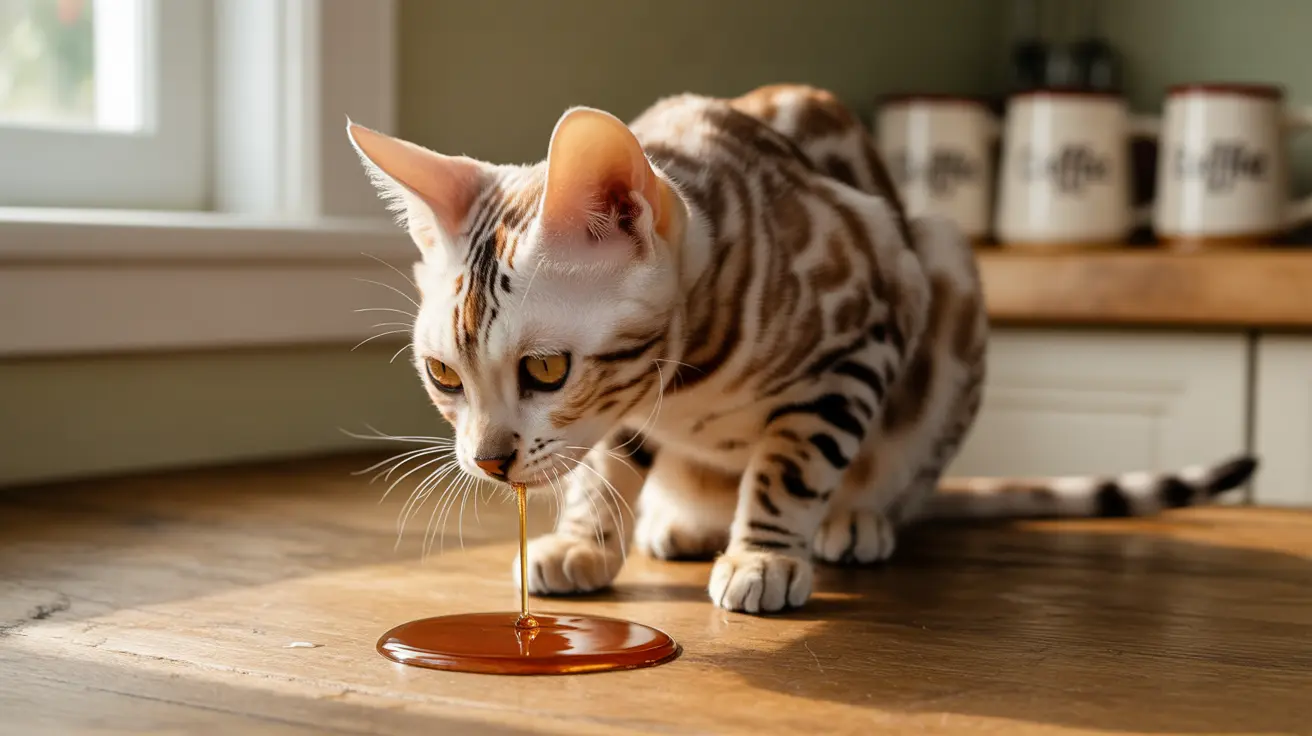Many cat owners wonder about sharing human treats with their feline friends, and maple syrup often raises questions. While this sweet, sticky condiment isn't toxic to cats, understanding its effects on feline health is crucial for responsible pet ownership.
In this comprehensive guide, we'll explore the relationship between cats and maple syrup, examining both safety concerns and potential health risks to help you make informed decisions about your pet's diet.
Understanding Cats and Sweet Foods
Cats are unique in the animal kingdom as obligate carnivores with no ability to taste sweetness. Their evolutionary adaptation has eliminated sweet taste receptors, making them naturally indifferent to sugary foods like maple syrup. This biological characteristic alone suggests that maple syrup serves no beneficial purpose in a cat's diet.
The Truth About Maple Syrup and Cats
Pure maple syrup consists primarily of sugar and water, with minimal amounts of minerals like manganese and zinc. While these trace minerals can be beneficial for humans, they appear in quantities too small to provide any meaningful nutritional value for cats.
A single tablespoon of maple syrup contains approximately 52 calories and 13 grams of sugar - a significant amount for a cat's small body size and specialized metabolism.
Potential Health Risks
Regular exposure to maple syrup can lead to several health concerns:
- Obesity from excess calories
- Increased risk of diabetes
- Dental problems
- Digestive issues including diarrhea
- Potential long-term metabolic changes
What Happens If Your Cat Consumes Maple Syrup
If your cat accidentally licks some maple syrup, there's usually no immediate cause for alarm. However, watch for these symptoms:
- Gastrointestinal upset
- Changes in appetite
- Lethargy
- Unusual bathroom habits
Better Alternatives for Treats
Instead of maple syrup, consider these cat-appropriate treats:
- Commercial cat treats formulated for feline nutrition
- Small pieces of cooked lean meat
- Freeze-dried meat treats
- Specialized dental treats approved by veterinarians
Frequently Asked Questions
Is it safe for cats to eat or lick maple syrup?
While not toxic, maple syrup isn't safe for regular consumption by cats. A small accidental lick likely won't cause harm, but it should never be intentionally fed to cats.
Why should cats avoid maple syrup despite it not being toxic?
Cats should avoid maple syrup because they lack the enzymes to properly digest sugars, and it provides no nutritional value while potentially contributing to obesity and diabetes.
What health risks can arise from feeding maple syrup to cats regularly?
Regular maple syrup consumption can lead to obesity, diabetes, dental problems, and digestive issues in cats. It may also contribute to long-term metabolic disorders.
Do cats have the ability to taste sweetness in maple syrup?
No, cats lack sweet taste receptors and cannot taste sweetness in maple syrup or any other sweet foods. Any interest shown is likely due to texture or curiosity rather than taste.
What should I do if my cat accidentally consumes maple syrup?
Monitor your cat for signs of digestive upset or unusual behavior. If you notice concerning symptoms like vomiting or diarrhea, contact your veterinarian for guidance.
Conclusion
While maple syrup isn't toxic to cats, it has no place in their diet. As responsible pet owners, it's best to stick to species-appropriate foods and treats that support your cat's natural nutritional needs. If you're ever uncertain about feeding your cat human foods, consult with your veterinarian for professional guidance.






